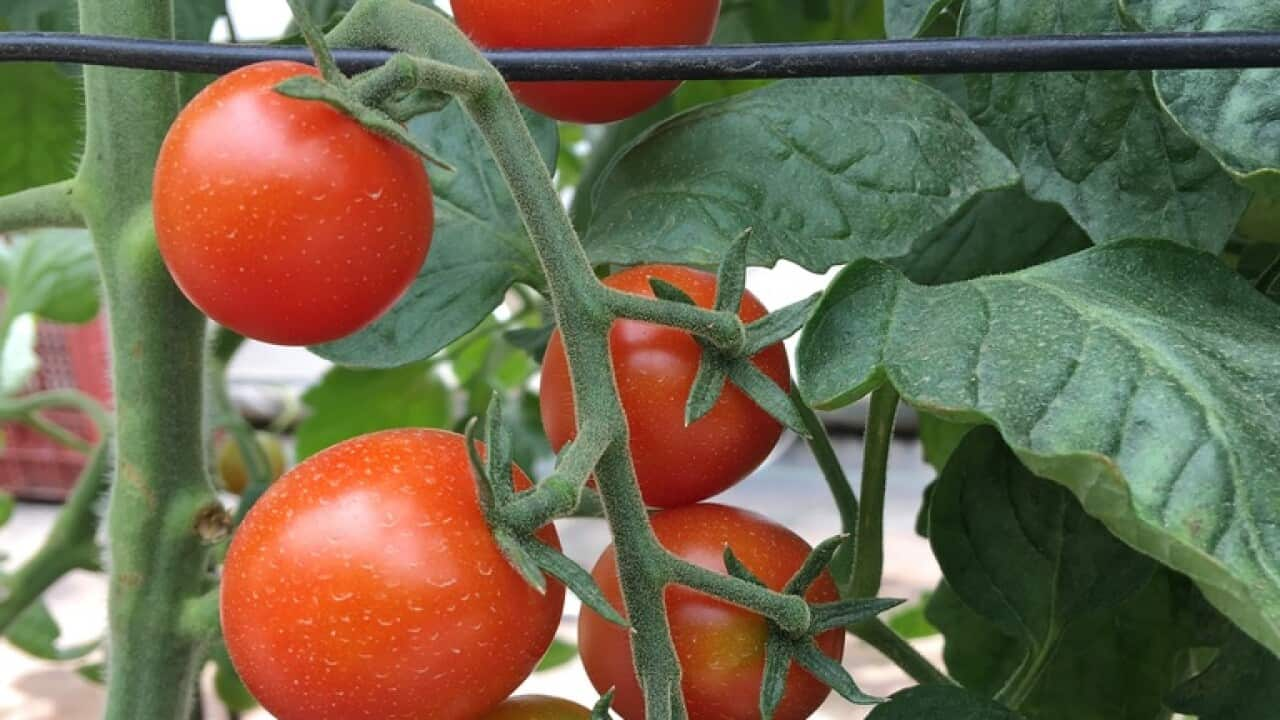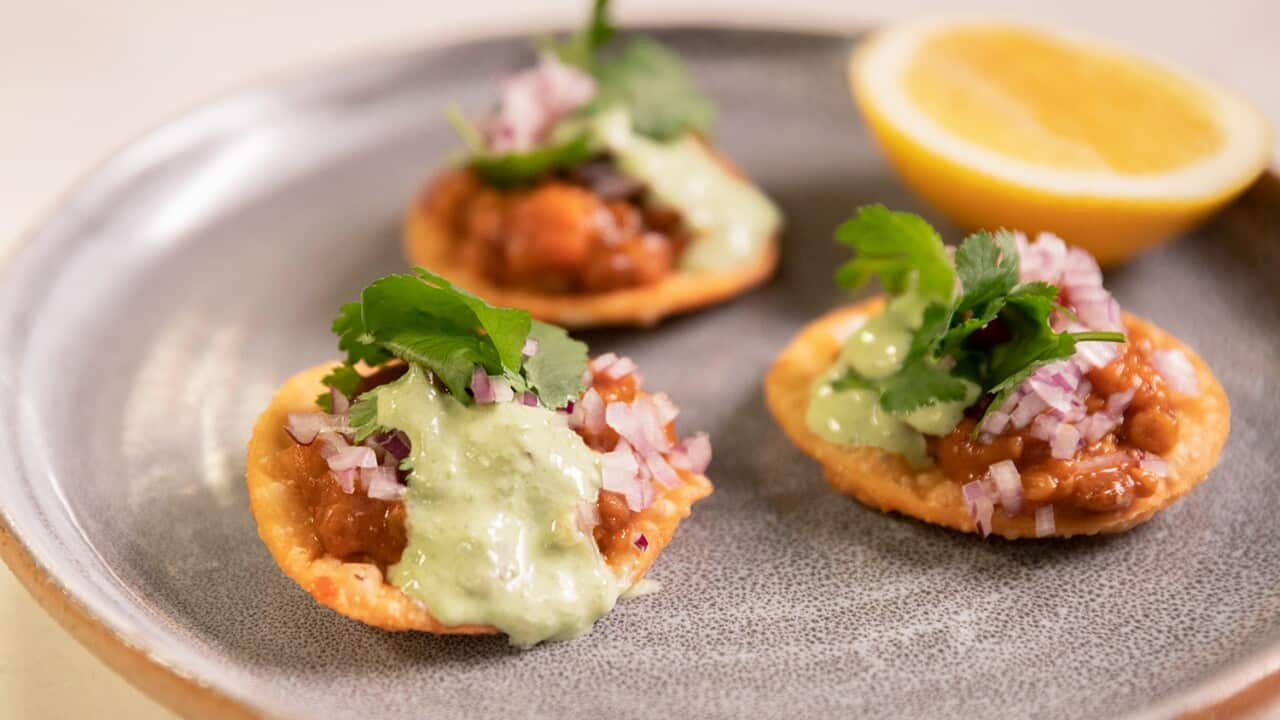There is a very simple way to turn up the magnificence of your weekend mornings: say farewell to the greasy fry-ups of brunches past and indulge in a comforting Turkish breakfast.
Accredited Practising Dietitan, , reminisces about the weekend breakfasts she’s enjoyed since her childhood. “I've always woken up with the beautiful smell of onions sautéing, as my mum prepared breakfast,” recalls Aydan.
“That was my childhood. It used to make me want to jump out of bed because I knew mum was cooking something amazing.”
Aydan’s most nostalgic breakfast is a dish called menemen. Although similar to the popular café staple shakshuka, menemen is created with a base of soft, caramelised onions, cooked slowly with olive oil to the point of translucency.
I've always woken up with the beautiful smell of onions sautéing, as my mum prepared breakfast.
The onion base is then transformed into a tomato sauce, loaded with capsicums, that is then used to cook scrambled or poached eggs within. “Once the eggs are done, add feta cheese, fresh herbs and spices on the top of the dish. Then dip your bread into the sauce and enjoy.”
Turkish cuisine is diverse, so it goes without saying that the Turkish breakfast list extends way beyond menemen or shakshuka. There are poached eggs served on a garlic yoghurt bed, eggs served with sautéed spring onions, parsley and wild greens, red lentil soup with milk and so many more healthy recipes to choose from.
However, the thing that really makes a traditional Turkish breakfast shine with health is its accompanying spread. Known as , the traditional breakfast spread consists of sliced cucumbers, green and black olives, feta cheese, kashkaval (a Turkish cheese), bread, and vegetable-based dips, fruit preserves or traditional spreads, and Turkish tea.
“Having vegetables like cucumber, tomato and olives in the morning are normalised in Turkish culture. They are staples. If we don’t have these ingredients on the table in the morning, it’s just not breakfast.”
More veggies please
According to , eight out of 10 Australian adults need to increase their intake of dairy foods to achieve the levels recommended by the . So eating a selection of cheese at breakfast may be beneficial.
also states that less than one in ten adults are eating the recommended amount of vegetables every day (five to six serves).
Aydan explains that having veggies at breakfast, like the Turkish do, is an easy way to increase your daily intake. “If you don’t eat vegetables at breakfast, you’re missing a good opportunity to get more nutrients into your diet. Just by eating vegetables at breakfast, you could possibly turn your health around.”
If we don’t have these ingredients on the table in the morning, it’s just not breakfast.
A diet that is high in vegetables will also contain a lot of fibre, which may improve your gut health and lower your risk of
More specifically, cucumbers, tomatoes and olive oil confer a number of health benefits to the eater. are excellent sources of hydration and soluble fibre, which is great for our guts. Tomatoes and tomato-rich foods like tomato paste are high in an antioxidant that may improve your heart health and lower your risk of developing certain kinds of cancer.
Then there are the health benefits that accumulate from eating olives and using olive oil. “In Western countries, we consume an average intake of around 20 ml of olive oil a day whereas, in Middle Eastern and Mediterranean countries, it's an average of about 60 ml," explains Aydan. "We have olive oil with everything, including cooking breakfasts in it. It’s obviously also consumed when you eat a lot of olives.
“Olive oil is phenomenal for your heart health as it’s full of polyunsaturated and monounsaturated fats in the right ratio. It is also anti-inflammatory, which means it can benefit so many areas, from joint health to brain health.”
Eat for pleasure
Accredited Practising Dietitian, believes that we should all consider vegetable-heavy breakfasts from other cultures – including Turkey.
“It's really important for us to talk about breakfast options of cuisines around the world,” Dr Rouf says. “A Turkish breakfast that’s filled with cheese, wholegrain breads, eggs and vegetables is nutrient-dense. I believe it’s a superior option to a traditional fried bacon and eggs breakfast.
“A Turkish breakfast also features more variety than an Anglo breakfast. From a gut health perspective, we know it's important to kind of eat around 30 different plant-based foods a day.”
Eating foods from a platter like kahvaltı for breakfast will definitely help to improve the variety of plant-based foods in your diet.
“Generally, this Mediterranean style of varied eating gives people permission to eat a range of different foods in one sitting. If you eat this way, you usually won’t feel deprived or restricted by your eating habits.
“The result is that you’ll most likely gain pleasure from the food you’re eating, and enjoy your weekend breakfasts a whole lot more.”







